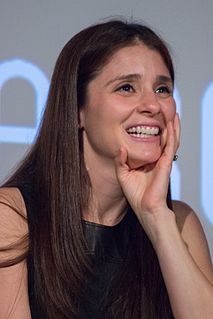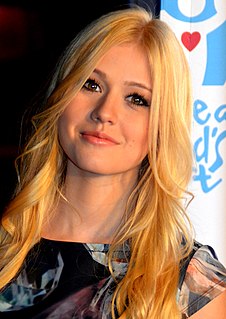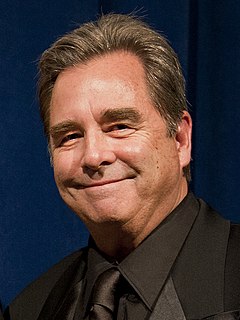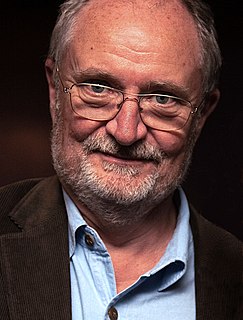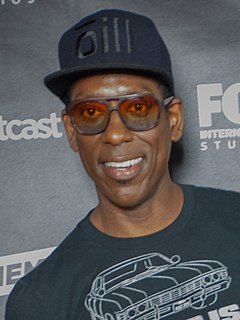A Quote by Shiri Appleby
Most of the roles I've had, usually the story's about how the man affects my character.
Related Quotes
A woman can be demure, lady-like and the most prim and proper character, and still have a toughness and resiliency as apparent as a superhero-type female character or a warrior or soldier type. It's all about the story, the character, and the course of events in that piece of work and how that character is presented.
Roger Casement is an intriguing figure - humanitarian, Irish revolutionary, gay - and much had and would be written about him, there was something about his character as a conflicted man, an Irish Protestant who spent much of his time representing England in different African nations, a gay man who, true to the times, kept his sexual orientation to himself, that kept playing in my head. I read on and around him, but a historical figure is not a story - it's not even a character - so my story, the one that I would develop into Valiant Gentlemen, had yet to reveal itself.
I read the story and reread the story, but I still could not find the universality that the little Irishman had spoken of. All I saw in the story was some Irishmen meeting in a room and talking politics. What had that to do with America, especially with my people? It was not until years later that I saw what he meant ... I began to listen, to listen closely to how they talked about their heroes, to how they talked about the dead and how great the dead had once been. I heard it everywhere.
I don't want to be pretentious about, "yes, I need to move in to the more dramatic roles and express myself and prove to everyone that I'm capable of doing it," it really isn't that, I think that's a bad reason to choose roles. It's more like, who would I be working with and would they be fun to do and entertaining to watch, is it an interesting story or character.
As a young actor, I was advised to bide my time. Back then, there weren't good roles for someone like me. There were handsome leading men and character actors for smaller supporting roles. But I was told to hang in there, and it was good advice. We're all character actors now. Even a handsome man is a character actor at my age.
Well, this is a story about books." About books?" About accursed books, about a man who wrote them, about a character who broke out of the pages of anovel so that he could burn it, about a betrayal and a lost friendship. It's a story of love, of hatred, and of the dreams that live in the shadow of the wind." You talk like the jacket blurb of a Victorian novel, Daniel." That's probably because I work in a bookshop and I've seen too many. But this is a true story.
In the 1980s, there was no category to stick me in. 'He sounds too smart' is what I was hearing. I realized that I had to become a member of the school of what I call 'ugly acting.' Which meant I wanted to do what Dustin Hoffman did very successfully: to play character roles, but lead character roles.
Our awareness of time affects how we think and act. This is illustrated by the story about the clock in a restaurant window. It "had stopped a few minutes past noon. One day a friend asked the owner if he knew the clock was not running. 'Yes,' replied the restaurant man, 'but you would be surprised to know how many people look at that clock, think they are hungry, and come in to get something to eat."' If only there were some kind of divine timepiece that would arouse a spiritual hunger in people!
